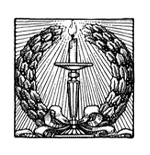
James Likoudis, R.I.P.
GUEST COLUMN
The Catholic Church lost one of her most courageous and articulate defenders of the contemporary era when James Likoudis died this past September at the age of 95.
A revered historian, apologist, and educator, Likoudis devoted his life to explaining the teachings of the Church, defending marriage and the family against the assaults of secularism and the sexual revolution, and, most significantly, bridging the divide between Catholicism and Eastern Orthodoxy. Likoudis’s death marks the end of a profound journey of faith and a life of unwavering commitment to the truth. As president of Catholics United for the Faith (CUF), a lay organization founded in 1968, he became a leading voice in defense of Church teachings, particularly those articulated by Pope St. Paul VI in his encyclical Humanae Vitae (1968). Likoudis’s tireless efforts to uphold Catholic sexual morality and the authority of the magisterium led him to travel and lecture worldwide, engaging audiences with his depth of knowledge.
Born in 1928 to Greek immigrants in Lackawanna, New York, Likoudis was baptized in the Greek Orthodox Church. As a young man, he experienced a profound intellectual transformation at the University of Buffalo’s Newman Club, where he encountered the writings of St. Thomas Aquinas, Christopher Dawson, and other Catholic luminaries, prompting his conversion to the Catholic faith in 1952. This marked the beginning of his lifelong mission, much like his hero, St. Leopold of Castelnuovo, to foster unity between the Catholic and Orthodox Churches.
Likoudis’s contributions as a scholar and author were vast and include his distinguished works Ending the Byzantine Greek Schism (1992) and The Divine Primacy of the Bishop of Rome and Modern Eastern Orthodoxy (1999). These books, renowned for their depth and clarity, address theological and historical challenges with the goal of reuniting the two great Christian traditions. He completed this trilogy with Eastern Orthodoxy and the See of Peter: A Journey Towards Full Communion (2006). Likoudis’s impact on Catholic ecumenism was recognized in 2002 when the Society for Catholic Social Scientists gave him the Blessed Frederick Ozanam Award for Catholic Social Action, and again in 2020 when Sacred Heart Major Seminary awarded him an honorary doctorate of divinity.
You May Also Enjoy
The Holy Spirit was urging me to take up my cross and follow Jesus into this blessed wilderness where alone I would find my salvation.
I came to see that the Anglican schism of the sixteenth century, and the Protestant Reformation in general, did not reflect the original trajectory of the New Testament.
At every step, what I wanted was for my grandfather to know and love Christ. What I expected that to look like changed and matured as I did.

